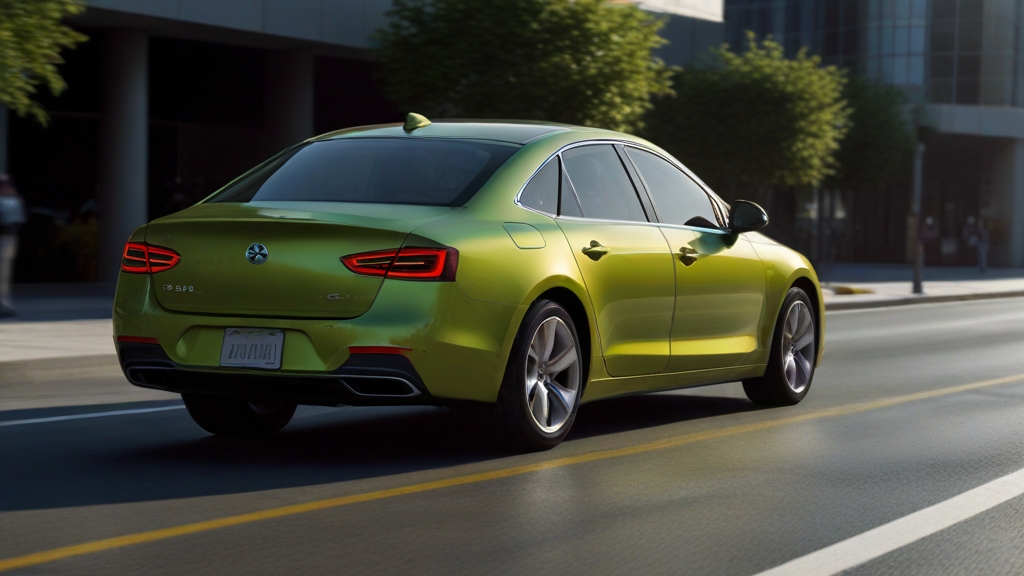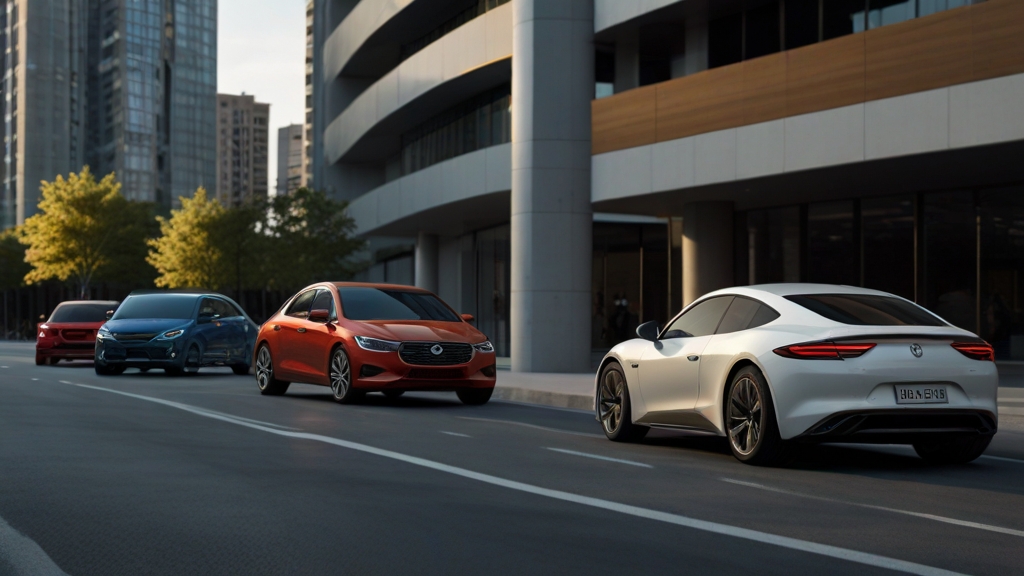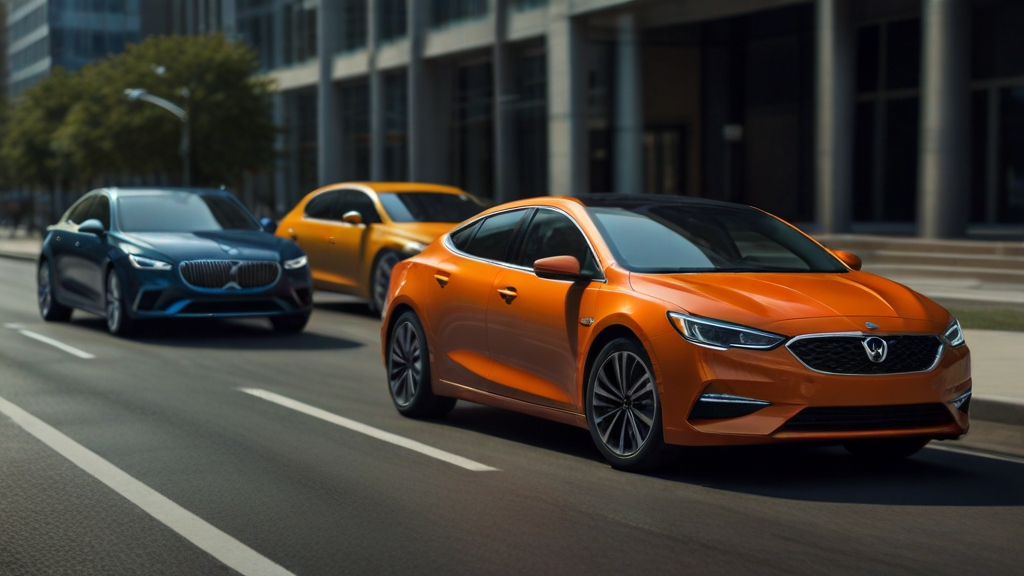In the age of environmental awareness, the choice between electric and gasoline vehicles has become a hot topic. But which one is truly better for the environment? Let’s dive into the details and find out. But first, let’s understand what we mean by “better for the environment.” Are we talking about greenhouse gas emissions, air pollution, or something else entirely? It’s time to break it down and discover the truth behind the buzzwords.
Table of Contents
| Sr | Headings |
|---|---|
| 1. | Introduction |
| 2. | Greenhouse Gas Emissions |
| 3. | Air Pollution |
| 4. | Energy Efficiency |
| 5. | Resource Depletion |
| 6. | Manufacturing Impact |
| 7. | Noise Pollution |
| 8. | Infrastructure |
| 9. | Cost Considerations |
| 10. | Driving Experience |
| 11. | Environmental Impact Over Time |
| 12. | Conclusion |
| 13. | FAQs |
Introduction
Let’s kick things off with a basic question: when we say “better for the environment,” what do we actually mean? Is it about reducing greenhouse gas emissions, cutting down on air pollution, or something else altogether? Buckle up, because we’re about to take a deep dive into the world of electric and gasoline vehicles to find out which one comes out on top in the eco-friendly race.

Greenhouse Gas Emissions
Electric Vehicles (EVs): These sleek machines are often hailed as the knights in shining armor when it comes to fighting greenhouse gas emissions. Why? Because they don’t burn any gasoline or diesel fuel, meaning they produce zero tailpipe emissions. It’s like taking a breath of fresh air every time you hit the road.
Gasoline Vehicles: On the other hand, traditional gasoline vehicles have a bit of a dirty secret. Every time you rev up that engine, you’re pumping out carbon dioxide and other nasty greenhouse gases into the atmosphere. Not exactly a win for Mother Nature.
Air Pollution
EVs: With their zero tailpipe emissions, electric vehicles are like the eco-warriors of the road, fighting against the smog and pollution that plagues our cities. Say goodbye to those pesky fumes and hello to cleaner, healthier air for all.
Gasoline Vehicles: It’s no secret that gasoline vehicles are major contributors to air pollution. From nitrogen oxides to volatile organic compounds, these cars pump out a toxic cocktail of pollutants that can wreak havoc on our health and the environment.
Energy Efficiency
EVs: When it comes to energy efficiency, electric vehicles have a leg up on their gasoline-powered counterparts. With fewer moving parts and no need for combustion, EVs can convert a higher percentage of the energy from their batteries into forward motion, making them more efficient overall.
Gasoline Vehicles: While gasoline vehicles have come a long way in terms of efficiency, they still can’t quite compete with the energy-saving prowess of electric vehicles. Plus, every time you hit the brakes in a traditional car, you’re essentially wasting energy in the form of heat.
Resource Depletion
EVs: One of the big selling points of electric vehicles is their reliance on electricity rather than finite fossil fuels like oil and gasoline. By tapping into renewable energy sources like solar and wind, EVs help reduce our dependence on non-renewable resources and pave the way for a more sustainable future.
Gasoline Vehicles: Gasoline vehicles, on the other hand, are stuck in the past when it comes to resource depletion. With each gallon of gasoline burned, we’re inching closer to depleting the Earth’s finite reserves of oil, leaving future generations high and dry.

Manufacturing Impact
EVs: While electric vehicles may be clean and green on the road, their manufacturing process can leave a bit of a carbon footprint. From mining rare earth metals for batteries to the energy-intensive production of electric motors, EVs aren’t entirely innocent when it comes to environmental impact.
Gasoline Vehicles: Gasoline vehicles have their own manufacturing woes, from the extraction and refining of crude oil to the assembly of engines and drivetrains. Plus, let’s not forget about the environmental toll of shipping all those parts around the globe.
Noise Pollution
EVs: If you’ve ever stepped outside and been greeted by the roar of a gasoline engine, you’ll appreciate the quiet hum of an electric vehicle. With their whisper-quiet operation, EVs help reduce noise pollution in our cities and neighborhoods, making for a more peaceful environment overall.
Gasoline Vehicles: From the rumble of a V8 to the buzz of a four-cylinder, gasoline vehicles are notorious for their noisy antics. Whether it’s the roar of acceleration or the rumble of idling, these cars can turn a quiet street into a cacophony of sound.
Infrastructure
EVs: While electric vehicles may be the way of the future, they still face some roadblocks when it comes to infrastructure. From the availability of charging stations to the capacity of the electrical grid, there are hurdles that need to be overcome to make EVs a practical choice for all drivers.
Gasoline Vehicles: Gasoline vehicles, on the other hand, have a well-established infrastructure that spans the globe. With gas stations on every corner and a network of roads and highways, these cars have the advantage when it comes to convenience and accessibility.
Cost Considerations
EVs: Electric vehicles may have a higher upfront cost compared to their gasoline counterparts, but they often make up for it in the long run with lower fuel and maintenance costs. Plus, with government incentives and tax credits available in many areas, the price gap is shrinking faster than ever.
Gasoline Vehicles: Gasoline vehicles are typically cheaper to buy upfront, but don’t let that sticker price fool you. Between rising fuel prices and the ongoing maintenance costs of oil changes and tune-ups, the true cost of ownership can add up over time.

Driving Experience
EVs: With instant torque and smooth, silent acceleration, driving an electric vehicle is like gliding on a cloud. Say goodbye to the jerky gear shifts and noisy engine revs of a traditional car and hello to a driving experience that’s as serene as it is exhilarating.
Gasoline Vehicles: Gasoline vehicles may not have the same instant torque as electric cars, but they’ve got a certain charm that’s hard to resist. From the throaty growl of a sports car to the rugged rumble of a pickup truck, there’s something undeniably satisfying about the roar of a gasoline engine.
Environmental Impact Over Time
EVs: While electric vehicles may have a higher environmental impact during the manufacturing process, their eco-friendly benefits shine through over time. With zero tailpipe emissions and the potential to run on renewable energy, EVs offer a greener alternative to gasoline vehicles in the long run.
Gasoline Vehicles: Gasoline vehicles may have a smaller environmental footprint upfront, but their ongoing emissions and reliance on finite fossil fuels make them a less sustainable choice in the long term. Plus, as the push for renewable energy continues, the environmental benefits of electric vehicles will only grow stronger.
Conclusion
So, which is better for the environment: electric or gasoline vehicles? The answer lies in the details. While electric vehicles certainly have their environmental advantages, such as zero tailpipe emissions and energy efficiency, they also come with manufacturing and infrastructure challenges. On the other hand, gasoline vehicles may be more established in terms of infrastructure, but they contribute to air pollution and rely on finite fossil fuels.
In the end, the choice between electric and gasoline vehicles depends on various factors, including your driving needs, environmental priorities, and available resources. Whether you opt for the whisper-quiet hum of an electric car or the throaty growl of a gasoline engine, it’s essential to consider the long-term impact of your decision on the planet.
FAQs
1. Are electric vehicles really better for the environment? Absolutely! Electric vehicles produce zero tailpipe emissions and can be powered by renewable energy sources, making them a cleaner alternative to gasoline vehicles.
2. What about the environmental impact of manufacturing electric vehicle batteries? While the manufacturing process for electric vehicle batteries does have environmental implications, advancements in technology and recycling efforts are helping to mitigate these concerns.
3. Do electric vehicles cost more to maintain than gasoline vehicles? In general, electric vehicles have lower maintenance costs than gasoline vehicles since they have fewer moving parts and don’t require oil changes or tune-ups. Plus, with fewer fluids to replace and no combustion engine to maintain, EV owners can save on routine maintenance expenses.
4. How long does it take to charge an electric vehicle? Charging times for electric vehicles vary depending on the charger type and the vehicle’s battery capacity. Level 1 chargers (120 volts) typically take several hours to fully charge an EV, while Level 2 chargers (240 volts) can charge a vehicle in a matter of hours. DC fast chargers offer the quickest charging times, providing an 80% charge in as little as 30 minutes.
5. What incentives are available for purchasing an electric vehicle? Many governments offer incentives and tax credits to encourage the adoption of electric vehicles. These incentives can include rebates, tax credits, reduced registration fees, and access to carpool lanes. Be sure to check with your local government or utility provider to see what incentives are available in your area.
As the automotive industry continues to evolve, so too will our understanding of the environmental impact of different vehicle technologies. Whether you choose an electric or gasoline vehicle, making informed decisions about your transportation habits can help drive us towards a cleaner, greener future for all.




